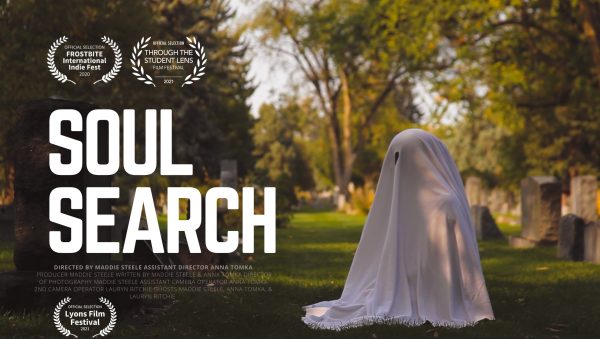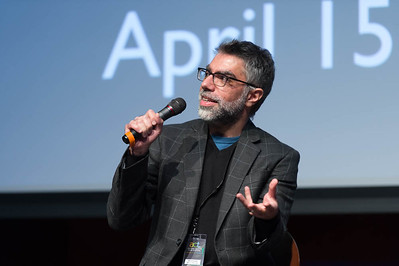 The inaugural edition of CSU’s Through the Student Lens Film Festival premiered online May 3 through May 17. With a total runtime of just 57 minutes, the festival featured 23 short films made by students and recent alumni, including seven filmmakers from the Department of Communication Studies.
The inaugural edition of CSU’s Through the Student Lens Film Festival premiered online May 3 through May 17. With a total runtime of just 57 minutes, the festival featured 23 short films made by students and recent alumni, including seven filmmakers from the Department of Communication Studies.
The films ran two to four minutes in length and varied widely in topic, approach, and style. Many of the films focused on local campus issues and students’ experiences. Selections were made by student and faculty programmers with the goal to showcase and celebrate student film. Moreover, the festival was largely led by the creative efforts of students Lauryn Ritchie (JMC ‘21), Zara Allen (CMST ‘22), and Kendall Constable (JMC ‘22).
Through the Student Lens Film Festival was originally planned and scheduled for an in-person premiere in late March 2020. In response to the COVID-19 pandemic, the festival was postponed, expanded, and shifted to an online format.
“Most of these films were made only using a smart phone and free editing tools,” notes the festival’s program director, Usama Alshaibi, teaching associate professor in the Department of Communication Studies at Colorado State University. Many of the films featured were made by first time student filmmakers in Alshaibi’s class, The Personal Lens: Making Media. Alshaibi’s 2013 award-winning documentary American Arab screened at the inaugural edition of ACT Human Rights Film Festival in 2016.
The films shown in Through the Student Lens were made between 2018 and 2020. Festival programmers organized the films program by dividing it into two segments, “Before” and “After.” Films selected for “Before,” capture life before the onset of the pandemic and address topics such as death, anxiety, and hate groups on CSU’s campus. Films appearing in “After” were made during the pandemic and examine the issues students faced as a new reality took hold of their lives.
Communication studies alumni whose films appear in the festival include:
- Evan Bode (’20) – “Anxiety Art,” 2019, (1:34). A visual representation of the cathartic power of harnessing creativity to express personal thoughts and feelings.
- Austin Boss (’19) – “Erasure,” 2019, (2:53). A look into the long-term effects of the mentally and physically abusive practice of Conversion Therapy.
- Chelan Flores (’19) – “Trying to be White,” 2019, (2:26). A look at growing up in a family that put an emphasis on suppressing any diversity and doing everything to fit into “white culture.”
- Lily Fordyce (’20) – “Reflect,” 2020, (2:00). “Reflect” was created out of struggle for a time of struggle.
- Lauren Howie (’20) – “And the People Stayed Home,” 2020, (1:26). Piecing together footage in quarantine with a reading of a poem by Kitty O’Meara.
- Max Lukaswitz (’18) – “Blissless,” also by Xiaoya Chent and Brett Hoffman, 2018, (2:10). An eclectic look at Fort Collins everyday life, sprinkled with some social issues that are hidden in the shadows.
- Maddie Steele (’20) – “Soul Search,” 2020, (1:55). Feeling isolated, a lonely ghost goes on a journey to find companionship and love.

“Not only do these films express the inner lives of students today, but this is also a historical record of a generation deeply impacted by our global pandemic,” says Alshaibi, who hopes Through the Student Lense Film Festival will become annual event on campus to promote and celebrate student films and elevate student voices.
Although the festival has ended, the entire film program is available on YouTube.
Through the Student Lens Film Festival is supported by Colorado State University’s Department of Communication Studies and the ACT Human Rights Film Festival.